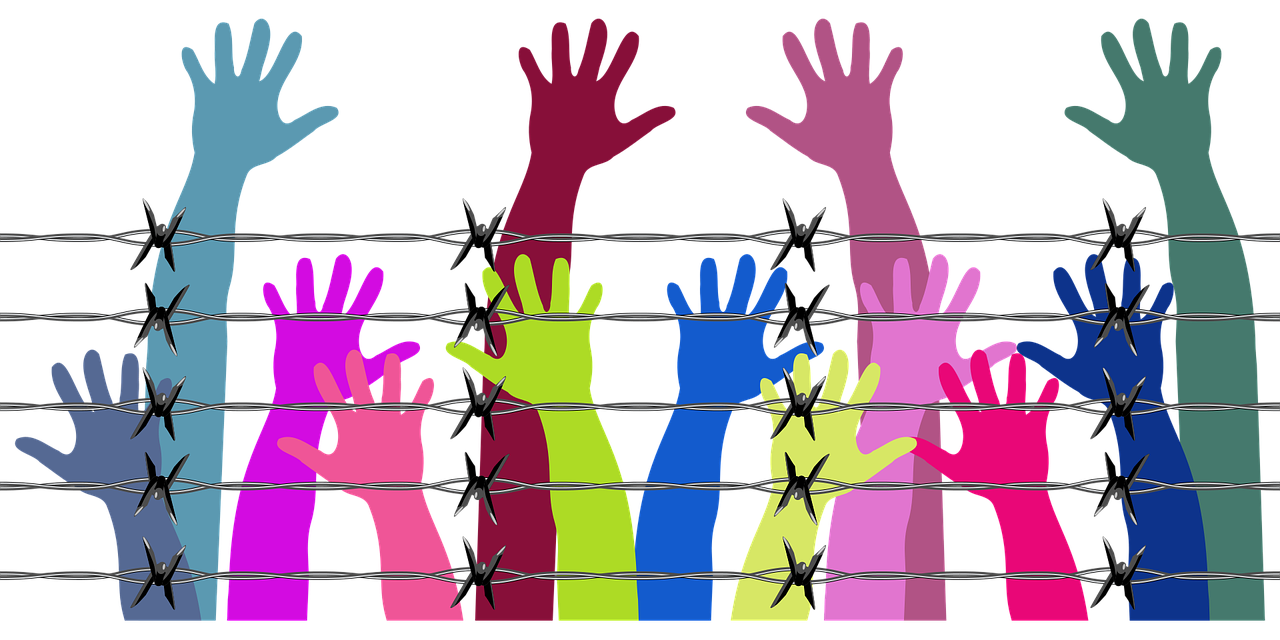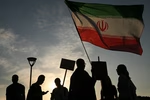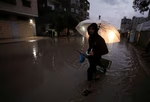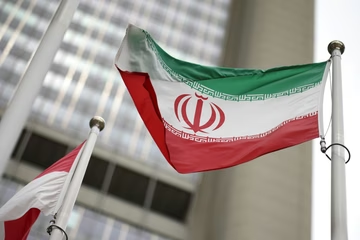HRW report: BiH authorities failed to prioritize human rights protection in 2022

According to the Human Rights Watch World Report, authorities failed to prioritize human rights protections in Bosnia and Herzegovina (BiH) in 2022, discrimination against minorities remains a serious concern and progress on war crimes prosecutions remains slow. However, it notes that a BiH court handed down a landmark ruling upholding a complaint about discrimination against members of the LGBT community.
Discrimination and Intolerance
HRW notes that the OSCE recorded 91 ethnicity and religion-based hate crimes based between January and June, four involving physical violence and that, at the time of writing, 13 hate crime trials were ongoing and 1 person was convicted in 2022.
UN High Commissioner for Human Rights Michelle Bachelet highlighted discrimination based on ethnicity, gender, and sexual orientation and expressed concerns about access to education, social protection, and the rights of Roma and people with disabilities following her visit to the country in June.
In notes that the High Representative of the international community in BiH proposed “controversial changes to the election law, including reducing representation from the country’s three main groups in the upper house of Federation BiH Parliament if a group makes up less than 3 percent of the population in a particular area” in July, but that the measure was withdrawn following protests while others were maintained.
“After polls closed on election day, October 2, the OHR imposed further election changes, provoking widespread criticism, including of the timing. The measures fail to address long-standing political discrimination against Jews, Roma, and other minorities who are barred from standing for the Presidency, notwithstanding the modest increase in the number of seats for such minorities in the upper house of the Federation Parliament,” HRW said.
It also noted that a report on the impact of Covid-19 in BiH published by UNICEF and UNDP in June found that the pandemic increased poverty and food deprivation and worsened social and economic inequalities, especially among already disadvantaged groups and those at risk of deprivation or deemed “vulnerable.”
“Roma people face obstacles to the enjoyment of their rights. According to a 2022 study by the Romani Early Years Network (REYN), many Roma children face discrimination when accessing public services, including education and health care,” it said.
Accountability for War Crimes
In June, the OSCE concluded that authorities were unlikely to meet a deadline to process all remaining war crime cases by the end of 2023. OSCE data shows that 237 war crime cases against 502 defendants were pending before courts in BiH at the end of July.
“Almost 500 war crimes cases involving 4,000 suspects have yet to reach the courts. In the first six months of 2022, courts in BiH rendered first-instance judgments in 20 cases and final judgements in 14 cases. As of August 2022, there were 51 pending cases involving allegations of conflict-related sexual violence. In the first six months of 2022, courts reached 4 first instance judgments and 5 final judgements.”
A report by TRIAL International, Vive zene, and the Global Survivors Fund found that BiH has not yet provided adequate and effective reparations to survivors of conflict-related sexual violence due to an inadequate legal framework and that “only about 1,000 of an estimated 20,000 survivors have received some form of reparations.”
The BiH Constitutional Court ruled in July that an attempt by Bosnia’s Republika Srpska (RS) entity to limit a 2021 genocide denial law on its territory was unconstitutional. According to HRW, “the issue continues to be politicized 27 years after the genocide in Srebrenica.”
Authorities in the district of Brcko approved a draft law to provide civilian victims of the 1992-95 war with reparations and recognize the rights of children born as a result of conflict-rated sexual violence that same month and the UN urged other authorities in the country to follow suit. Later the same month, the parliament of the Federation of BiH approved a draft law aiming to provide similar reparations.
Asylum Seekers and Migrants
The Service for Foreigners’ Affairs registered 11,881 persons between January and August expressing an intention to seek asylum. However, the UN Refugee Agency (UNHCR) reported that only 90 people submitted asylum applications in the first six months of 2022 and that Bosnian authorities issued 35 decisions.
Of these, none were granted refugee status and 12 were granted subsidiary protection.
By June, the Service for Foreigner’s Affairs recorded 363 Ukrainians in BiH, 102 of whom expressed intention to apply for asylum. Ukrainians are granted temporary residence on humanitarian grounds.
A survey of child migrants, predominantly unaccompanied children, found widespread abuse by police, smugglers, and others, including sexual violence and pushbacks. Reports of pushbacks and abuses at the Croatian border continued.
Domestic and Other Gender-Based Violence
A January submission by the Institution of Human Rights Ombudsman of Bosnia and Herzegovina to the UN Special Rapporteur on the right to health concluded that domestic violence in BiH, especially violence against women, is among the country’s most serious human rights violations.
According to the women’s rights organization Kvinna till Kvinna, progress in addressing gender-based violence is hindered by many issues, including ineffective coordination among the judiciary, law enforcement, and centres for social work.
The BiH House of Peoples adopted the Draft Law on Protection from Domestic Violence in July in an effort to harmonize national legislation with the Convention on Preventing and Combating Violence against Women and Domestic Violence - the Istanbul Convention - which BiH ratified in 2013.
The Parliament of BiH’s Federation (FBiH) entity also amended the criminal code to align it more closely with the Convention.
Sexual Orientation and Gender Identity
The Sarajevo Open Center recorded eight hate crimes involving physical attacks against members of the LGBTQ+ community between January and August.
The Sarajevo Pride took place in June 2022, and monitoring showed “an increase in anti-LGBT speech on social media including by politicians” ahead of the event.
In April, a municipal court in Sarajevo ruled in favour of two activists who sued a former assembly member for encouraging state institutions to discriminate against LBGT people, which is “the first-ever verdict in a BiH court against discrimination based on sexual orientation or gender identity.”
Freedom of Media
The national public radio and TV broadcaster BHRT faced the risk of closure in April after the public broadcaster in the RS entity, RTRS, “refused to pass on millions of Euros of shared revenue from the national license fee despite its obligation to do so, a move described by Reporters Without Borders as an attack on media pluralism.”
BHRT’s accounts were unfrozen following the intervention of the BiH Federation Parliament.
Pollution and Human Rights
HRW noted that authorities failed to tackle the country’s air pollution issue which leads to the deaths of thousands of people prematurely each year and is a major health risk to thousands more.
“The country’s reliance on coal and wood for heat and coal for electricity generation makes cities in BiH some of the world’s most polluted during winter months. Despite health and climate impacts, authorities remain committed to coal, particularly for electricity,” HRW said.
Kakvo je tvoje mišljenje o ovome?
Učestvuj u diskusiji ili pročitaj komentare





 Srbija
Srbija
 Hrvatska
Hrvatska
 Slovenija
Slovenija


























































